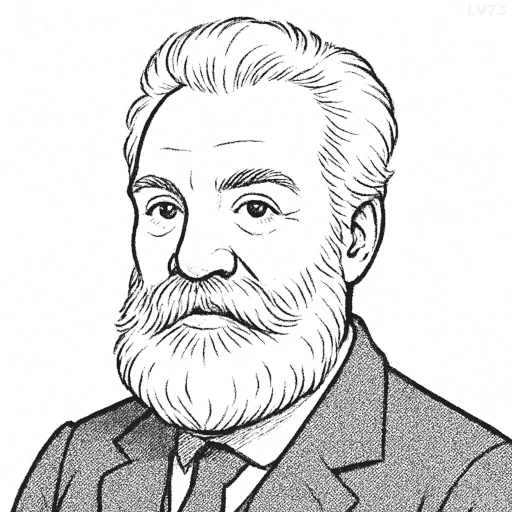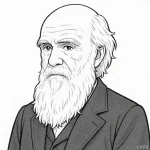“I do not recognize the right of the public to break in the front door of a man’s private life in order to satisfy the gaze of the curious… I do not think it right to dissect living men even for the advancement of science. So far as I am concerned, I prefer a post mortem examination to vivisection without anaesthetics.”

- March 3, 1847 – August 2, 1922
- Born in Scotland
- Inventor, scientist, engineer, educator
table of contents
Quote
“I do not recognize the right of the public to break in the front door of a man’s private life in order to satisfy the gaze of the curious… I do not think it right to dissect living men even for the advancement of science. So far as I am concerned, I prefer a post mortem examination to vivisection without anaesthetics.”
Explanation
In this quote, Alexander Graham Bell expresses his firm stance on the ethics of both privacy and the treatment of living beings in scientific experimentation. He criticizes the intrusion into personal lives for mere curiosity, asserting that individuals have a right to keep their private lives free from public scrutiny. Additionally, Bell condemns the practice of vivisection (the dissection of living creatures for scientific purposes) without anesthesia, indicating a deep concern for the moral and ethical implications of such actions. Bell’s perspective reflects a strong belief in human dignity and respect for personal autonomy, as well as compassion in the pursuit of knowledge.
Historically, this quote reflects Bell’s position as a scientist who was also deeply concerned with ethical boundaries in research. During his time, there was growing debate over the morality of experiments involving living animals—especially in the fields of medicine and physiology. The development of modern scientific techniques often involved discomforting practices, and figures like Bell, who were sensitive to ethical concerns, voiced their opposition to extreme methods such as vivisection without anesthetics. His stance also aligns with the broader intellectual environment of the 19th century, where thinkers began to demand more ethical approaches to research.
In the modern world, this quote continues to be relevant, particularly as we navigate the ethics of biomedical research, data privacy, and medical experimentation. In an age where technology often puts personal information and bodies under scrutiny, Bell’s call for privacy, dignity, and ethical research remains a reminder of the importance of balancing scientific progress with respect for individual rights. This perspective echoes in modern debates about genetic research, AI privacy concerns, and the ethical treatment of animals and humans in scientific experimentation. Bell’s views contribute to the ongoing discussion of moral responsibility in scientific and technological advancements.
Would you like to share your impressions or related stories about this quote in the comments section?





